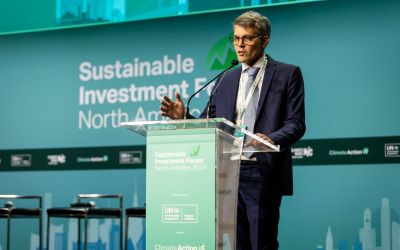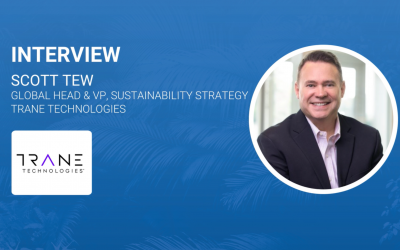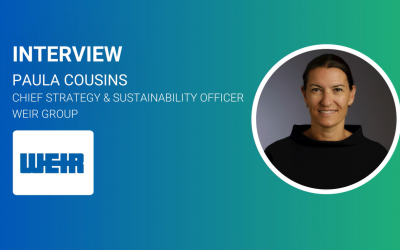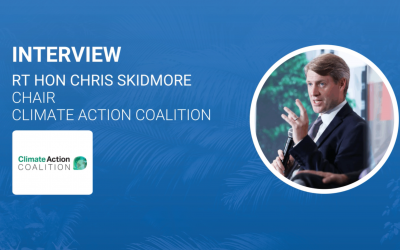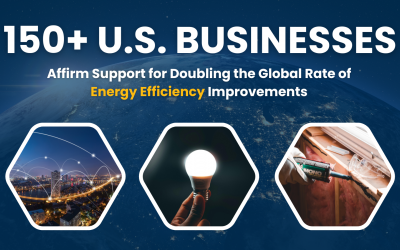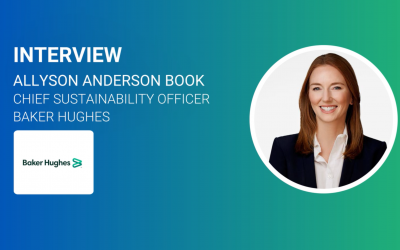Sean Doyle on the key projects from British Airways aiming to drive the decarbonisation of aviation
Ahead of the Transport Transition Summit, taking place on the 11 & 12 May, Climate Action caught up with Sean Doyle, CEO at British Airways, to discuss the key projects British Airways have implemented to drive the decarbonisation of the aviation industry and what a successful COP looks like.
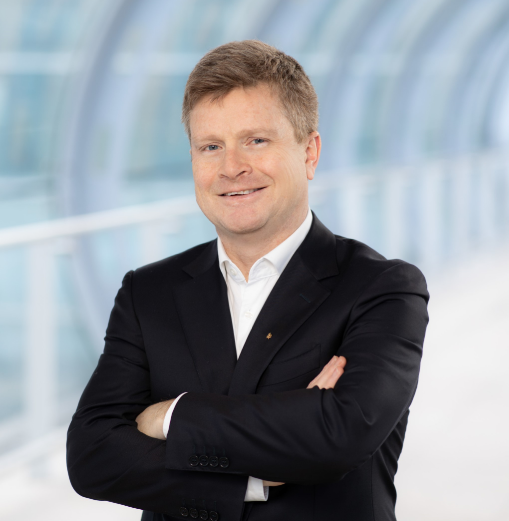
Ahead of the Transport Transition Summit, taking place on the 11 & 12 May, Climate Action caught up with Sean Doyle, CEO at British Airways, to discuss the key projects British Airways have implemented to drive the decarbonisation of the aviation industry and what a successful COP looks like.
You're speaking as part of our Transition Month within The Roadmap to COP26. What does COP mean for the transport industry, what do you need from COP and what does a successful COP look like for you?
COP26 will give nations an opportunity to collectively review climate change commitments, strengthen ambition and gives us the opportunity to explain our short, medium and long-term net zero transition plans and reinforce our commitment to decarbonising.
At COP26, we hope to see further support to enable the aviation industry to decarbonise as soon as possible – specifically in relation to further policy backing and support for sustainable aviation fuel (SAF) as well as international carbon accounting agreements to finalise the ‘Paris Rule Book’ (Article 6 of the Paris Climate Agreement). This will allow industries like aviation to support nature-based carbon removals and technical fixes like Carbon Capture and Storage, while we scale up new technologies for our own sector (including Sustainable Aviation Fuel and low carbon aircraft.)
COP is a starting line not a finish line to reach a net-zero future by 2050. But, short-term action is just as important as long term net-zero ambitions. In your industry what do you see as the most important short-term measures and steps needed to get on track to net-zero in the long term?
Applying laser focus to operational efficiency is a clear starting point. Operational improvements are key and something that we can all do here and now. At British Airways, we are flying more modern, fuel-efficient aircraft including A350s, 787s and A320neos, which are up to 40 per cent more fuel-efficient than the 747, which we recently retired four years earlier than planned. In addition, airlines can make operational improvements now, something we do every single day. Our pilots continually refine operational practices including single-engine taxiing, optimum routings accounting for winds, continuous descents and optimised landing gear deployment.
For ground operations, wherever possible, we are hooking our aircraft up to fixed electrical ground power sources and pre-conditioned air supplied from renewable electricity and we are replacing diesel and petrol vehicles with more sustainable alternatives, such as electric remote-controlled Mototok pushback vehicles. All our Heathrow and Gatwick electricity is sourced from 100% renewable electricity supply, mainly wind-powered.
And finally offsetting, which has a critical interim role to play so it is a central part of our near-term plan that we can deliver now, while alternatives to fossil fuels are developed and new technologies evolve. We offset emissions on all our flights within the UK and provide passengers with a voluntary option to offset the emissions from their flights if travelling internationally, providing passengers with effective choices for high quality independently verified carbon offsets.
In reaching net-zero we must take action this decade, but there are many structural, financial, and policy barriers. Where do you see the greatest friction currently, and how can cross-sector collaboration and public-private partnership help to overcome these barriers?
We need to see more cross sector collaboration and public-private partnerships for the development and scale-up of sustainable aviation fuels. Sustainable Aviation estimates a 32% reduction in emissions from UK aviation is possible from the use of SAF by 2050. As a Group we have committed to powering 10% of our flights with sustainable fuel by 2030. The UK has the experience and resources needed to become a global leader in the deployment of sustainable aviation fuel production facilities, which will boost the UK economy, the UK Plc brand and create thousands of new jobs. The aviation industry requires public private partnership and appropriate regulatory support to successfully decarbonise.
We’d also like to see more Government support for low carbon aircraft. Aviation is not currently featured in the UK Government’s hydrogen strategy for example, yet with the technology developing fast, this could be a big source of demand.
British Airways is doing a load of work to drive decarbonisation of the aviation industry including integrating and investing in sustainable aviation fuels, driving efficiencies on the ground and in the air and pushing for cross-sector collaboration. What excites you most about these projects and where do you see most potential for aviation’s decarbonisation?
We are seeing a huge amount of energy and excitement building around the possibilities of a zero emissions future. To successfully decarbonise, aviation requires a multi-faceted approach and while there is no single solution, we are pushing forward on multiple fronts. We announced our second SAF partnership just a few months back, with the fuel produced expected to be available to power a number of our flights from the end of next year. SAF is a vital part of decarbonising aviation in the near to mid-term. In the longer term we see both the development of carbon capture and storage and hydrogen as very exciting opportunities.
Aviation has a unique set of challenges in terms of reaching net-zero by 2050 if not sooner. Despite this, what other sectors (outside of transport and within) can you learn from, what can you take from these sectors and what learnings can you share in return?
Our current pathway is to achieve net zero emissions by 2050 in line with IPCC 1.5 special report and the UK Government’s ambition. However, we understand that the next decade is pivotal in establishing the policies, business processes and technologies that will enable us to achieve that, so we are taking action now.
I think we can be inspired by the electric car market. I hope in the next decade we’ll see a similar scale of progress on the development of zero emissions aircraft that’s been achieved with electric cars in the last decade. ZeroAvia, our partner on hydrogen propulsion innovation has big ambitions and we’re hugely excited by the development and possibilities of this technology, which has potential to enable us to reach true zero emissions on short-haul routes by 2050.
Sean Doyle is speaking at the Transport Transition Summit this May! Register now to connect with a growing network of over 1,500 transport, energy and policy professionals mapping the next phase of the transport transition.

